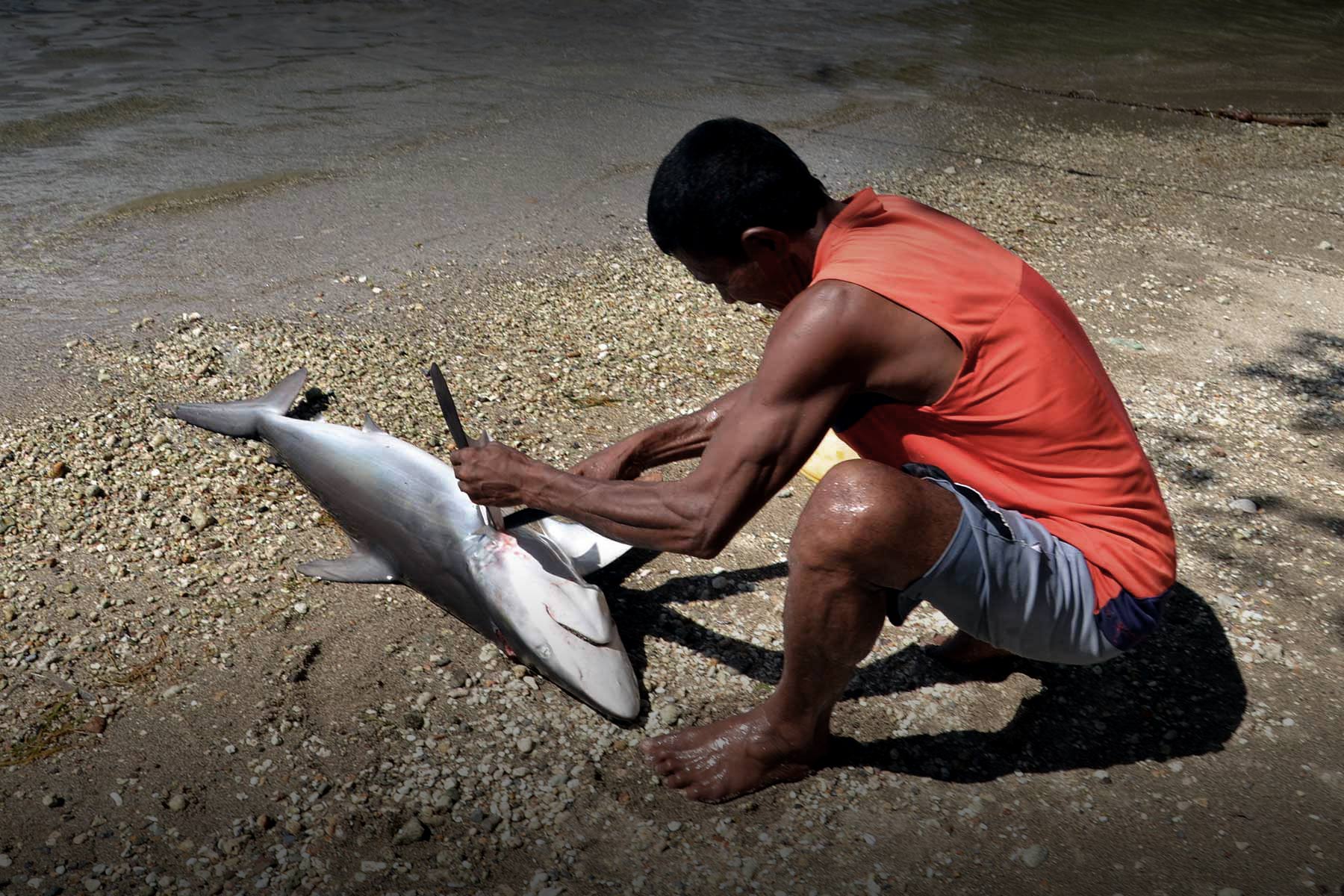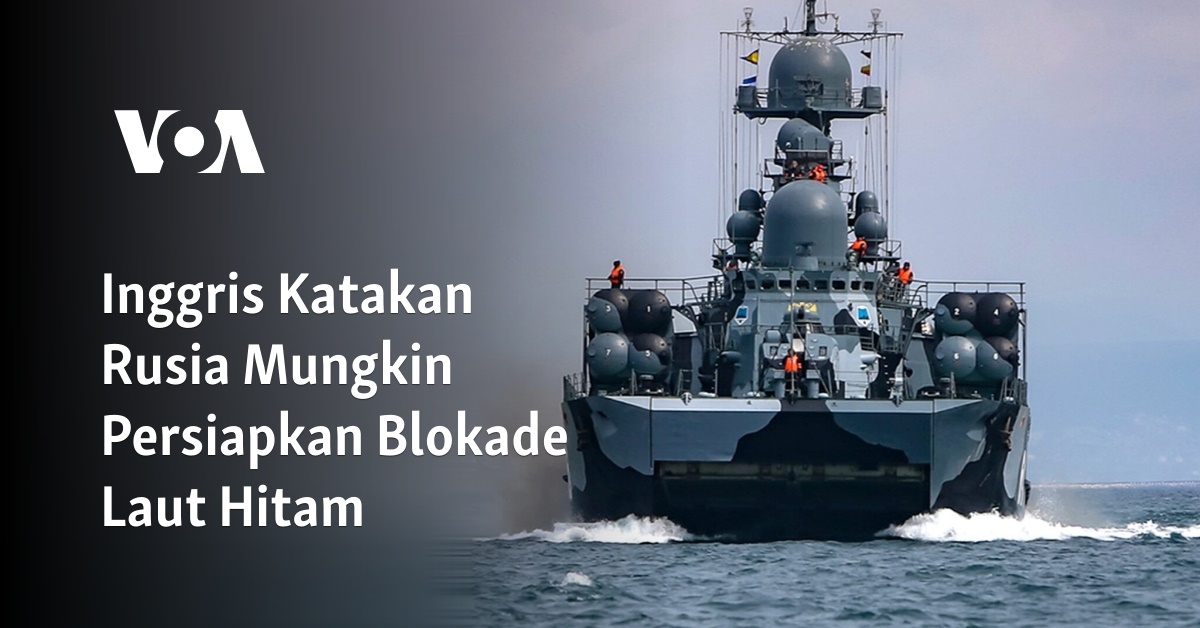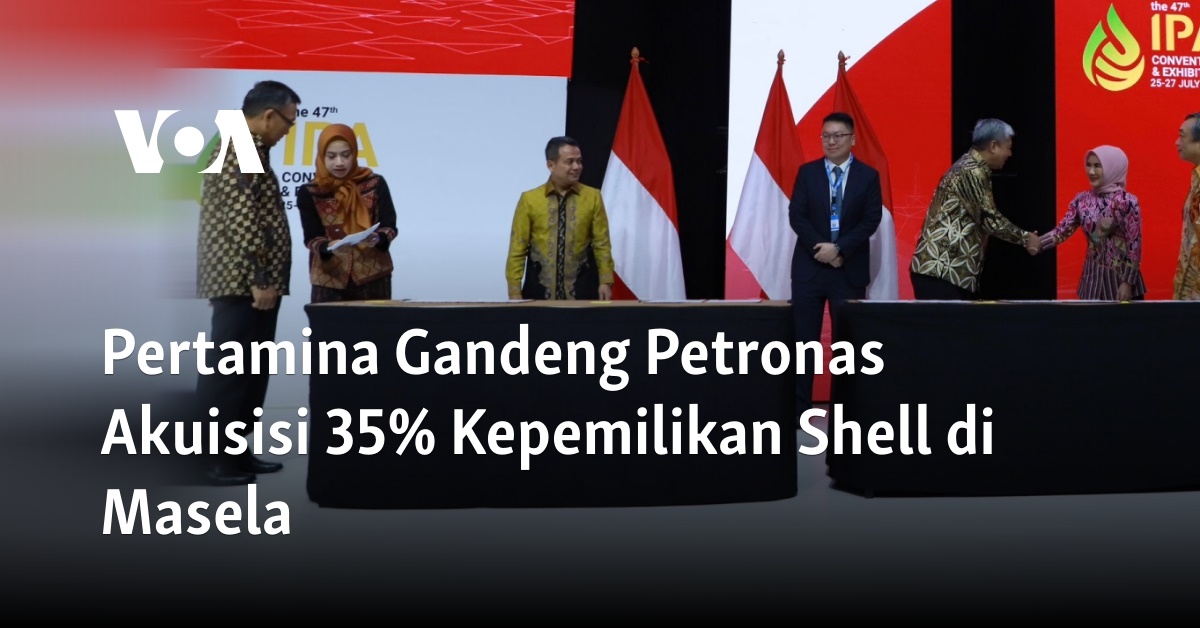
In early June 2022, Petrus Lesawengen (62) welcomed Zonautara.com to his home on Batuwingkung Island, Tabukan Selatan District, Sangihe Islands Regency, North Sulawesi Province, shortly after the end of the fishing season for sharks. The island is nicknamed “shark island” as most of the fishermen there rely on catching these marine predators for their livelihood. At his age, Petrus still goes out to sea in his boat, far from Batuwingkung, to hunt sharks, a tradition that has been passed down through generations. It is no wonder that his two sons, Yohanis (32) and Timotius (26), have followed in his footsteps.
“Now things are better. The boat is larger and has a motor. The fishing gear also uses the long line method. We once caught 28 sharks in one trip,” said Petrus, as he tidied up his fishing equipment.
From the proceeds of hunting sharks, Petrus was able to fund Timotius’s education up to his graduation with a bachelor’s degree in computer and communication engineering from North Nusa Politechnic, Sangihe. Timotius hopes to become a civil servant, but despite several attempts at the civil service exams, he has not passed.
“Now I go out to sea with my father,” added Timotius.
During the conversation that evening, Timotius invited Zonautara.com to the kitchen, where hundreds of dried shark fins had been hanging, the result of several months of hunting.
“The most commonly caught shark here is the silky shark, which we call menehe,” explained Timotius, while also showing some sacks filled with dry shark fins.
In addition to the silky shark, there are also fins from the blue shark and hammerhead shark. The Batuwingkung fishermen have identified most of the shark species they catch.
“Although it is seasonal, we depend on catching sharks to make a living here. Our ancestors have been doing this for a long time. I was also able to go to college and graduate by selling shark fins,” said Timotius.
Zonautara.com tried to wait for other shark fishermen who went out to sea a day before. At around 10:30 am, a boat about 8 meters long docked on the beach where two fishermen, Noldi Diawang (33) and his partner, Aljufri Kaemba (35), immediately unloaded their catch. They seemed to be having no luck that day as they only caught one silky shark, about 2 meters long. They quickly dragged the predator’s body to the beach, and Noldi expertly used his knife to gut it. In no time, he removed all the fins one by one. Then, he sliced the shark’s body into two parts, washed them, and packed the fins in a container to be transported elsewhere. The shark meat will be sold at the Petta market.
Similar activities could be seen around the Petta harbor in Tabukan Utara District, one of the main fish trading posts in Sangihe Island. Here, fishermen unload their catch without any supervision from the authorities. There are no monitoring posts from the Coastal and Marine Resources Management Agency (BPSPL) or the Fisheries and Marine Department. There is no record of how many sharks are caught, how many fins and meat are sold. Fishermen like Noldi and Aljufri effortlessly sell their catches.
The same activities happened in other markets that took place three times a week. Fishermen from other islands come to sell their catch and meet their daily needs. As in Batuwingkung, those who catch sharks sell their fins to shark fin dealers.
Oktavianto Prasetio Darmono from the Rekam Nusantara Foundation, a non-profit organization that conducts various studies on natural resources, biodiversity, and conservation actions in Indonesia, called for the government to provide facilities for the landing of fish commodities, particularly a fishing port, especially for species that are protected under CITES.
Of the 400 plus species of sharks identified worldwide, 12 species are included in CITES Appendix II. Nine of them can be found in Indonesian waters, including the silky shark, which is commonly caught in Batu


